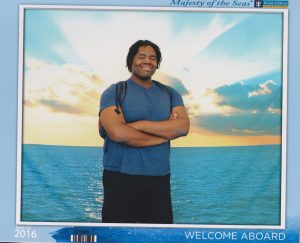Subscriber Benefit
As a subscriber you can listen to articles at work, in the car, or while you work out. Subscribe NowAn Indianapolis family is suing the city of Indianapolis and six of its police officers, claiming the officers used “unreasonable, excessive, and deadly” force against their son as he was handcuffed, lying on the ground and repeatedly telling them, “I can’t breathe.”
The wrongful death lawsuit, filed Wednesday in the U.S. District Court for the Southern District of Indiana, is seeking an unspecified amount of compensatory damages from the city and both compensatory and punitive damages from the six Indianapolis Metropolitan Police Officers involved in the incident.

According to the complaint, Herman Whitfield, a 39-year-old African American man described as “a gentle person,” was having a mental health episode but was not acting violently or threatening the police officers. However, one of the officers tased him, then the other officers handcuffed his hands behind his back and left him lying on his stomach while they applied pressure to his back for three to four minutes.
Whitfield said, “I can’t breathe,” at least three times before he lost consciousness and died.
In The Estate of Herman Whitfield, III v. the City of Indianapolis, et al., 1:22-cv-01246, Whitfield’s family asserts the use of excessive force by the defendants violated Whitfield’s Fourth Amendment rights. Also, the complaint calls the officers’ actions “reckless and done with callous indifference” and contends the city’s police policies and practices were responsible for the officers’ actions that resulted in Whitfield’s death.
The family is being represented by Indianapolis attorneys Israel Nunez Cruz of the Cruz Law Firm and Richard A. Waples of Waples & Hanger.
“Mr. Whitfield did not present a danger to the officers, and there was no need to taser him,” a news release announcing the lawsuit issued by the family’s attorneys stated. “Moreover, the officers violated their own training in keeping Mr. Whitfield handcuffed face down after he was restrained, and not moving or breathing, which led to his death. … Mr. Whitfield, who was in his family home, needed professional mental health care, not the use of excessive deadly force.”
The city of Indianapolis declined to comment on the pending litigation.
On April 25, Whitfield’s parents, Gladys and Herman Whitfield Jr., called for an ambulance to help their son who was having a “mental health crisis.” Six IMPD officers arrived: Steven Sanchez, Adam Ahmad, Matthew Virt, Dominique Clark, Jordan Bull and Nicholas Mathew.
The Whitfields told the officers everyone in the home was fine and they questioned where the ambulance was.
The officers then entered the home and spoke with Whitfield, according to the complaint. He was not responding cogently to their questions, but he eventually got up and began walking from his bedroom to the front door of the house.
As he turned from the kitchen into the dining room, Whitfield was tased at least twice by Sanchez. Whitfield collapsed to the floor, yelling, “fire, fire.”
“Mr. Whitfield had done nothing justifying Officer Sanchez shooting him with a taser in his own home,” the complaint states. “He had not threatened the officer verbally or physically, and because of his mental health crisis, was simply not responding to their demands to get dressed and leave.”
Whitfield was on the floor when four or five officers got on top of him, handcuffed him and left him lying on his stomach. According to the complaint, Whitfield repeatedly told officers, “I can’t breathe,” but the officers continued to put pressure on his back for “three to four minutes before medics arrived.”
When the ambulance arrived, the emergency medical technicians instructed the officers to get Whitfield off his stomach. At that point, Whitfield was unresponsive.
The EMTs performed CPR but Whitfield never regained consciousness.
As part of the complaint, the plaintiffs detail police procedures and the “widespread agreement in the policing community” about the risk of asphyxia when an individual is restrained in a prone position. Many police departments across the country instruct their officers to move individuals into a position that “facilitates breathing” as soon as they are handcuffed, according to the complaint.
“Despite the widespread knowledge about positional asphyxiation, three to four of the officers continued to apply pressure to Mr. Whitfield’s back after he was handcuffed and not moving and while he was prone on the floor,” the complaint states. “Rather than quickly sitting Mr. Whitfield up, the offices left him lying on his stomach.”
Please enable JavaScript to view this content.
